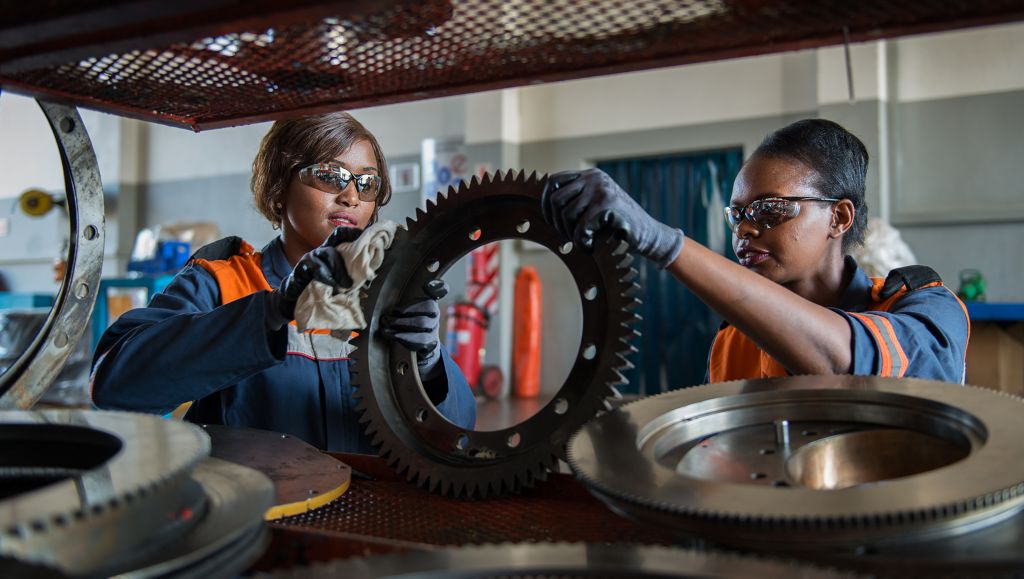Teaching Zambia’s future technicians


The Nortec vocational school lies in the heart of Zambia’s mining region, the Copperbelt. Since 2014, it has been part of the Zamita (Zambian Industrial Training Academy) project, one of the educational programmes in which the Volvo Group participates. Alport Banda is the head teacher at the heavy-duty machinery department.
“Before we were unable to teach the very latest technology because we didn’t have the equipment, so the students graduating from the school had to participate in internal training at their workplaces before they could do their jobs properly. This new partnership is going to raise the standard and the students will be able to find jobs in the mining, transport and construction industries,” he explains.
Selma Klipic is a production engineer at Volvo Group, GTO Powertrain Production Skövde, and a volunteer in Zambia.
“I never hesitated when this chance came up. At home I work with production techniques while at the same time I’m passionate about getting more women interested in the profession. So it fits well with my duties here”, she says.
The Volvo Group is in the process of shipping new equipment to the school as part of the training and education project.
“One of my tasks has been to plan the new workshop. It’s large and well suited to its task, with straight lines and plenty of potential. I have several ideas for what can be done and I have discussed different solutions with the workplace engineers in Skövde,” says Selma Klipic.
The Zamita programme is a one-year extension course for students who have already completed basic technology training and education at Nortec. A great deal of emphasis will be placed on electronics and electric hydraulics, as well as engines and gearboxes of different kinds, in order to cover the needs of industries in the region.
An important goal with the initiative is to give young people an education that matches companies’ needs, since many of the companies in the Copperbelt are existing Volvo Group customers. In addition, there is an aim to increase the percentage of female students at the school. At present, 11 of the 800 students on Nortec’s current heavy-duty machinery programme are women.
Irem Soydan, External CSR Management, explains the Volvo Group’s involvement. “Africa is one of the Volvo Group’s strategic growth markets and, with our sustainability programme, we can help create economic growth in the region. By concentrating on vocational training in different countries, the organisation helps to reduce unemployment, while remedying the lack of trained mechanics and technicians, which has been an obstacle to business development – both for our customers and for the Volvo Group,” she says.
In addition to the Volvo Group and Nortec, Zamita comprises the Swedish International Development Co-operation Agency (SIDA) and the UN organisation for industrial development, UNIDO.
Erik Ladefoged, technical adviser at UNIDO, describes the project as the beginning of a “fantastic concept”.
“When a company involves itself and commits to a development project for several years, as the Volvo Group is doing here, it’s completely different from the investments companies normally make within the framework of their social sustainability programmes,” he says.
Facts
Read more in our “Annual and Sustainability report” how we address economic, environmental and social challenges and opportunities to contribute to sustainable development.